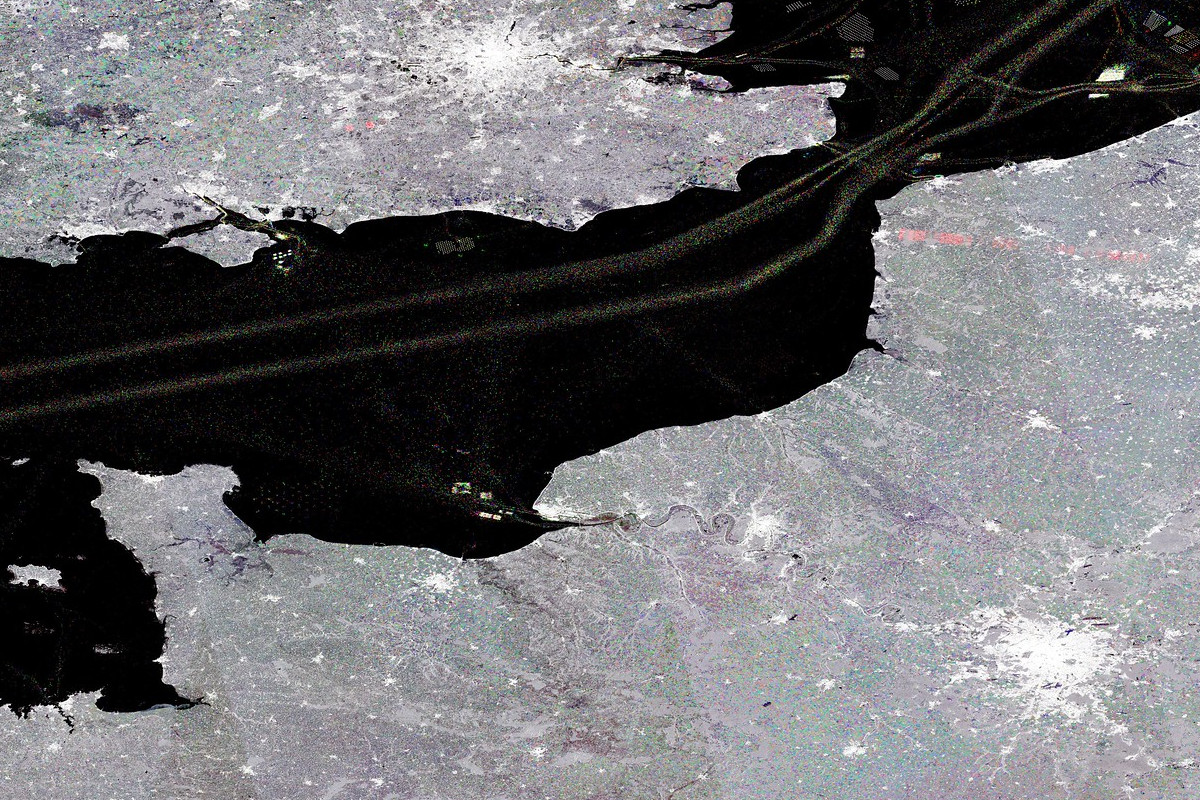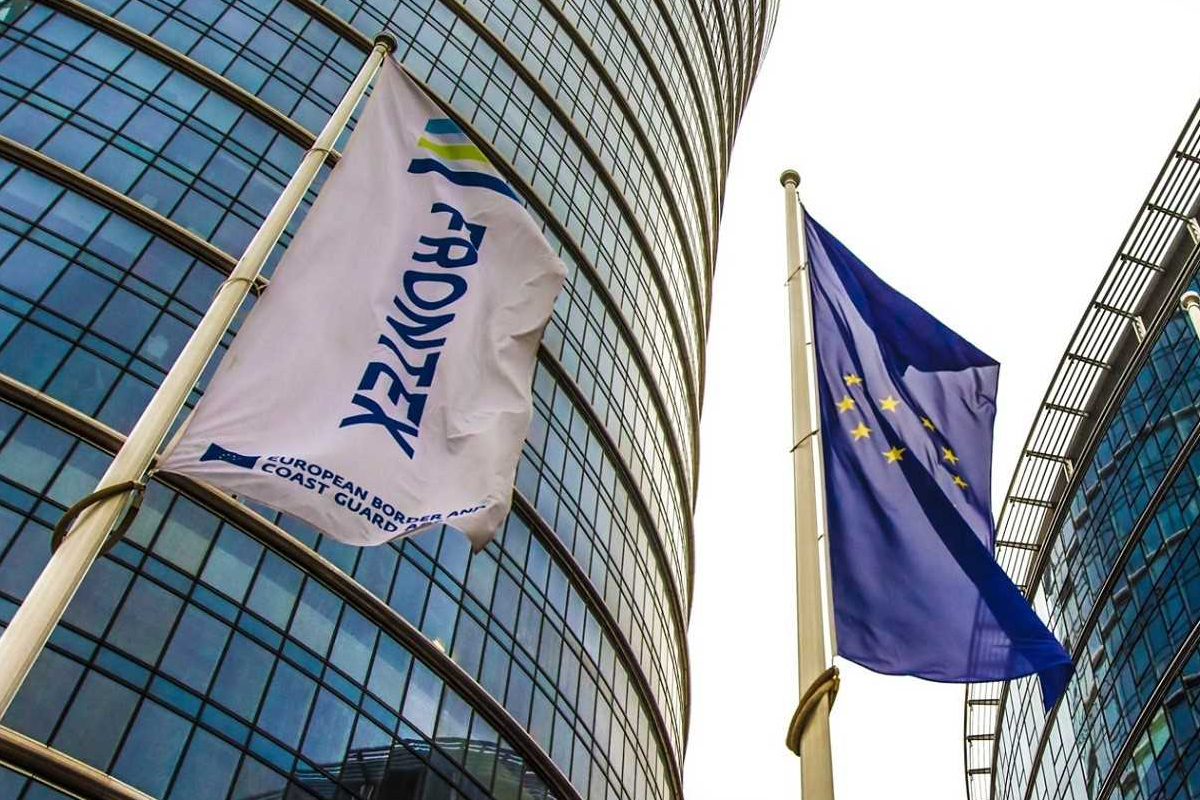JOINT STATEMENT of the Federal Republic of Germany, the Kingdom of Belgium, the Kingdom of the Netherlands, the French Republic on migration issues and police and judicial cooperation in the Channel and the North Sea
Topic
Country/Region
29 November 2021
The statement published following the meeting on Channel crossings, to which the UK was "disinvited", is entirely concerned with law enforcement and migration control measures, with no mention of humanitarian issues despite the drastic situation in Calais and other sites along the French and Belgian coasts. It is noteworthy that the statement announces the first major deployment of EU resources that aims to prevent departures from - rather than arrivals into - the EU.
Support our work: become a Friend of Statewatch from as little as £1/€1 per month.

JOINT STATEMENT of the Federal Republic of Germany, the Kingdom of Belgium, the Kingdom of the Netherlands, the French Republic on migration issues and police and judicial cooperation in the Channel and the North Sea (originally published as a PDF)
Gathered today in Calais at the invitation of France are the Federal Republic of Germany, the Kingdom of Belgium, the Kingdom of the Netherlands and the French Republic, in the presence of the European Commissioner for Home Affairs, as well as the Union agencies Europol and Frontex.
Represented by Stephan MAYER, Parliamentary State Secretary to the Federal Minister of the Interior, Building and Community of the Federal Republic of Germany; Annelies VERLINDEN, Minister of the Interior, Institutional Reforms, and Democratic Renewal; Sammy MAHDI, State Secretary for Asylum and Migration of the Kingdom of Belgium; Ankie BROEKERS-KNOL, Minister for Migration of the Kingdom of the Netherlands; Gerald DARMANIN, Minister of Interior of the French Republic; Ylva JOHANSSON, European Commissioner for Home Affairs; Catherine DE BOLLE, Executive Director of EUROPOL; Fabrice LEGGE RI, Executive Director of FRONTEX.
Expressed their emotion after the sinking on 24 November of a small boat trying to reach the British coast, causing the death of 27 people. They reaffirmed their commitment to do everything possible to combat more effectively the criminal networks of smugglers who take advantage of vulnerable migrant populations, exposing them to perilous sea crossings towards the United Kingdom. They are convinced of the need to strengthen operational cooperation between them, not only on the Channel and on North Sea coasts but further upstream in Europe and in the countries of origin and transit, and that improving the joint cooperation with the United Kingdom is also essential. They underlined the need to effectively contain secondary movements within the Schengen area in order to break the business model of criminal networks and cut the dangerous routes that put migrants' lives at risk.
They exchanged views on the current situation, as well as on the possible operational and structural responses. As a result, they made recommendations and took decisions in the following areas.
1. Cooperation against smuggling networks
The irregular sea crossings currently observed are the result of Europe-wide migratory movements organised by criminal networks across the Schengen area and beyond and all the way to the United Kingdom.
The participating States commit themselves, in the spirit of the EU Action Plan against migrant smuggling (2015-2020) and the renewed EU action plan against migrant smuggling (2021-2025):
- to strengthen police cooperation in border areas, in a coordinated manner, by mobilising all appropriate means: to this end, they will intensify criminal intelligence exchanges, carry out joint surveillance operations and enhance cooperation between relevant national law enforcement and border guard authorities, making use of existing structures and partnerships including, where applicable: strengthening the resources of the Police and Customs Cooperation Centres (PCCCs), which are an important tool for this cooperation, or contributing to the Operational Intelligence Unit (URO) based in Coquelles;
- to increase their police and judicial involvement: the participating States commit to deepen the judicial cooperation and the exchange of information; the organisation, financing and supply of nautical equipment to smugglers will be resolutely fought by each of the participating States;
- to make full use of European instruments, in particular the European Multidisciplinary Platform against Criminal Threats (EMPACT) and the Europol, Eurojust, and Frontex agencies, each within its mandate.
They call on the United Kingdom to follow a similar approach, including by actively cooperating on intelligence matters and, in particular, by transmitting to the participating States all data relevant to the fight against smuggling rings.
2. Cooperation in migration matters
The participants note the challenges and new legal realities resulting from the exit of the United Kingdom from the European Union in the field of asylum and migration. They acknowledge the need for the EU to work on these issues with the UK.
The participants also commit:
- to work together to obtain better cooperation from countries of origin on readmission, using all available instruments;
- to work together to make further progress in the European negotiations on the European Pact on Migration and Asylum, and on the reform of Schengen, in particular with regard to external border control;
- to make full use of the resources and expertise of the European agencies: in particular, Frontex will implement more resources in the Channel and North Sea region, including aerial surveillance, and Europol will reinforce its deployment of liaison officer within the URO, in support of the agents of the Member States.
Finally, the participants reaffirm their determination to speed up the implementation of the renewed action plan against the smuggling of migrants of the European Union.
They call for a discussion on the issue of irregular migratory flows leading towards the Channel and the North Sea during the Justice and Home Affairs Council meeting on 9 December.
Image: European Space Agency, CC BY-SA 2.0
Our work is only possible with your support.
Become a Friend of Statewatch from as little as £1/€1 per month.
Spotted an error? If you've spotted a problem with this page, just click once to let us know.

